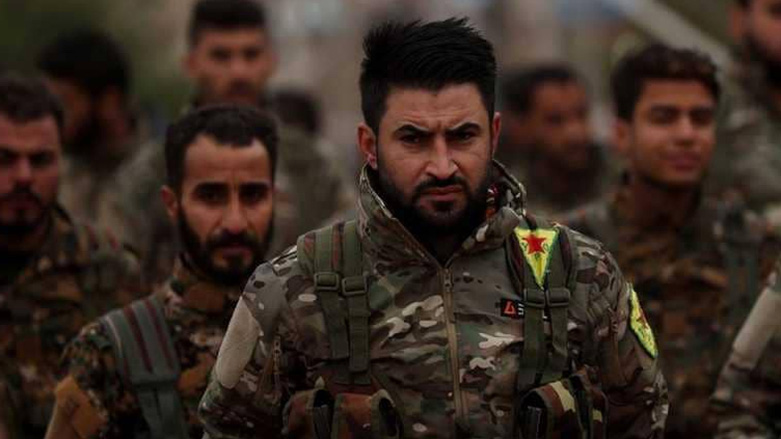Syrian Kurdish officials slam Damascus threats as ISIS military defeat nears

ERBIL (Kurdistan 24) – Damascus’ recent use of “threatening language” is a continuation of its policy of “repression and violence,” the Kurdish-led self-administration in northern Syria said on Tuesday in response to a statement by a Syrian minister.
On Monday, Syrian Defense Minister Ali Abdullah Ayoub reaffirmed, again, that Damascus would retake full control of the country “sooner or later” either through “reconciliation or military force.”
The local administration then announced that the minister’s statement “reflects the continuation of the sterile racist policies that led Syria to this catastrophic situation,” referring to the bloody civil war that the country has been embroiled in for eight years. War monitors estimate that the conflict has led to as many as 570,000 deaths.
“The use of threatening language against the Syrian Democratic Forces [SDF], which liberated and protected all of northern and eastern Syria from the terrorist forces, only serves the forces that are working to divide Syria’s unity.”
The SDF—the leadership of which is under the Kurdish People’s Protection Units (YPG)—is currently engaged in the final military campaign against the Islamic State, now cornered in a small piece of land called Baghouz near the Iraqi border.
“The self-administration has tried to support all the efforts and mechanisms of dialogue with Damascus and remains steadfast in its position on the need for a solution and dialogue within the Syrian framework for all outstanding issues,” the statement added.
“But,” the Kurds cautioned, Ayoub’s words emphasize “the insistence of the Syrian government on the policy of repression and violence.” The Kurdish administration also accused the Syrian government of “evading peaceful and democratic solutions.”
“We are with the option of a principled political solution, but we will not compromise on the legitimate defense of our rights if necessary.”
Syrian defense minister threatened SDF yesterday: reconcile or face our forces. The minister added that Syrian army can liberate the Tanef base from the Americans. Why mr. minister doesn't your intimidating army liberate Golan Heights or Afrin or Jarablis or alBab.
— Bassam Ishak (@bsishak) March 19, 2019
Bassam Ishak, an official from Syrian Democratic Council (SDC)—the political wing of the SDF—pointed out in a tweet that the defense minister directed his threats toward SDF-protected areas only and not the Golan Heights or Turkish-occupied lands in Syria such as Afrin, Jarablus, and al-Bab.
The SDF, the chief ally of the US in the fight against the Islamic State in Syria, controls a third of the country’s territory. Two rounds of negotiations in Damascus between the two sides have yet to produce meaningful or lasting results. Both sides have avoided direct confrontation with the other since the start of the civil war.
On Monday, the Islamic State published a lengthy audio recording, declaring that it remains a force to be reckoned with even as it loses its last patch of territory in Syria.
In the dispatch, a spokesperson urged supporters to launch attacks in all the countries that took part in fighting his organization, invoking the recent bloody attack on two mosques in New Zealand’s city of Christchurch that resulted in the deaths of 50 Muslims as a way to incite retaliatory violence.
Editing by John J. Catherine
